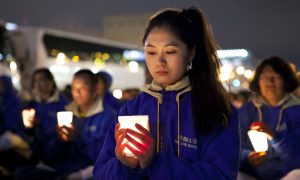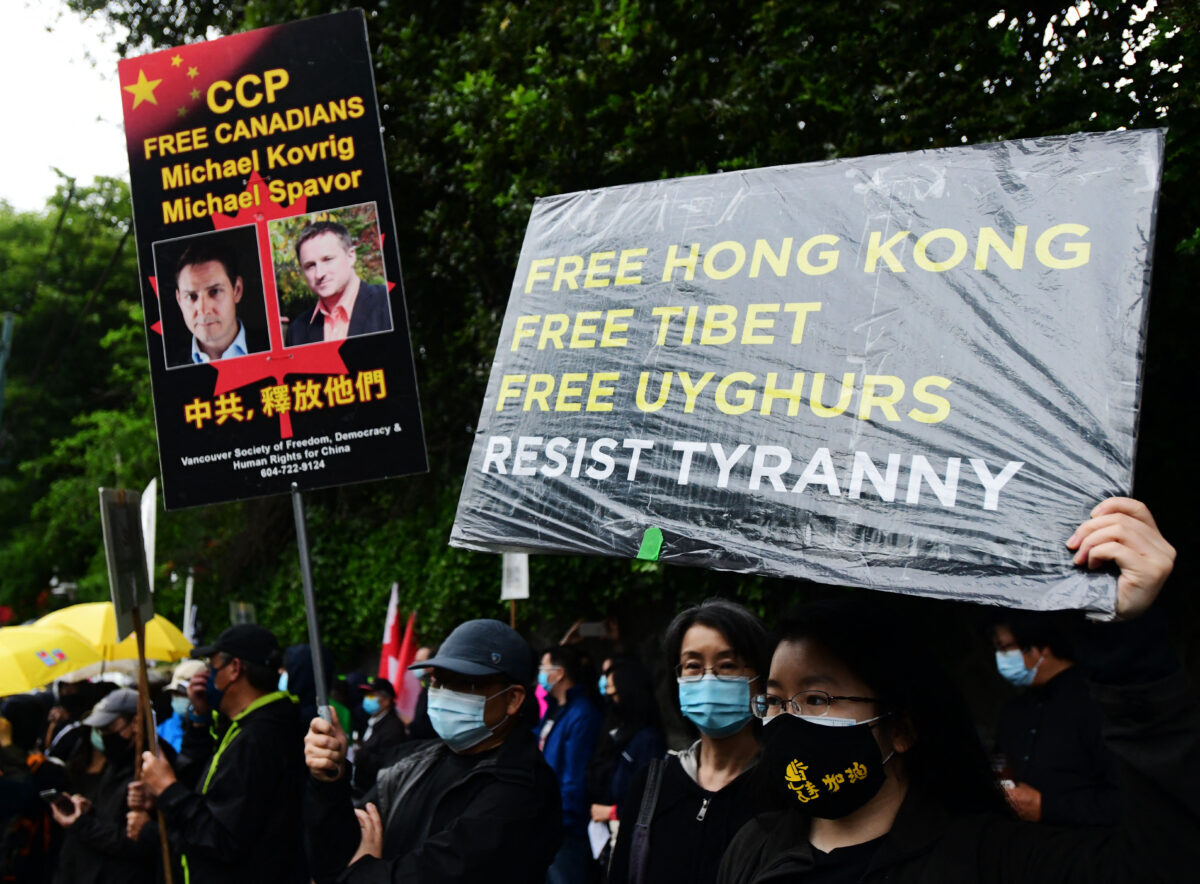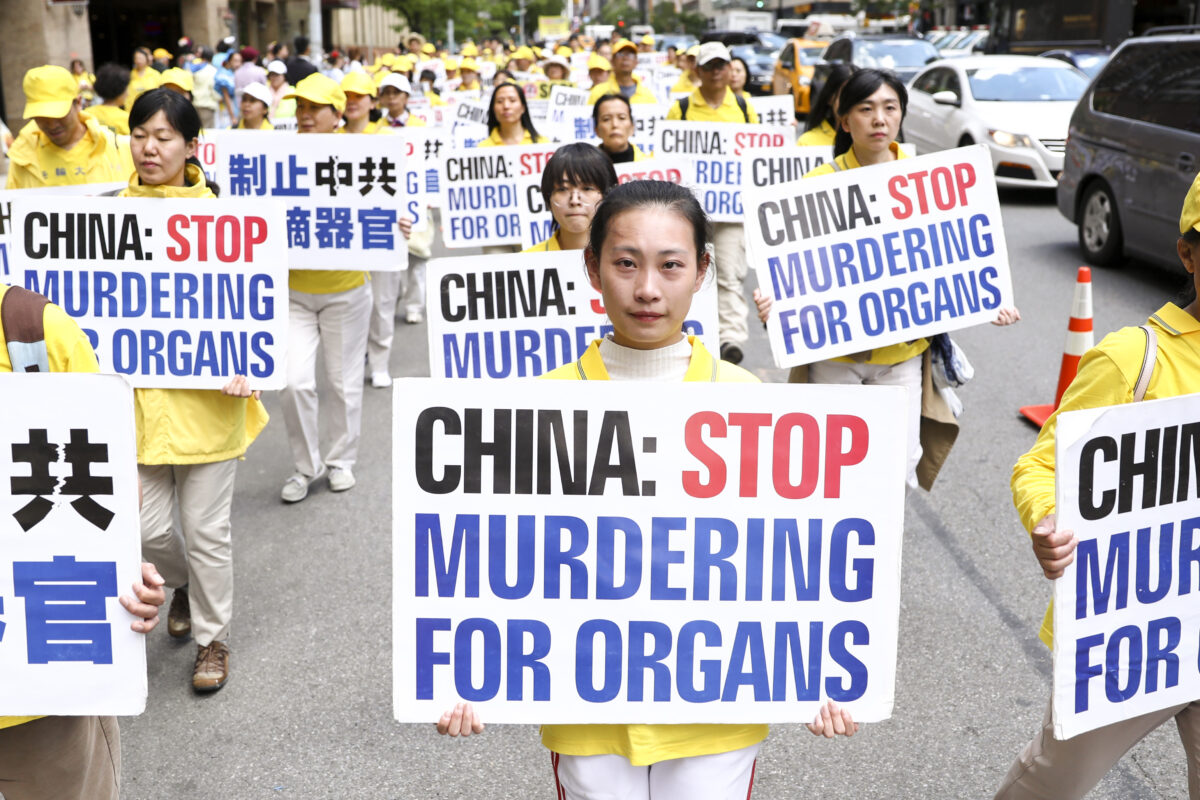A Prayer for the Victims of the CCP
Commentary Many people ask: what can they possibly do to assist the persecuted in China? It is not easy. Other nations, let alone ordinary citizens, often seem to have little influence on the behaviour of the Chinese communist regime. Human rights are ignored and abused; the rule of law is breached; international agreements and norms are flouted; and civil society is spurned. The regime despises the values expressed in the Universal Declaration of Human Rights and other international covenants and treaties. Yet it is hypersensitive to an examination of its record, regularly calling any criticism “Western Imperialism” or an “interference with its sovereignty.” This sensitivity suggests that international voices, both national and individual, have an impact. Countless stories from the Soviet Union illustrate how persecuted people were often strengthened in their resolve through knowledge that individuals and organisations elsewhere were aware of their plight and prepared to continually raise it with their own governments. There are various things that individuals can do. Small and insignificant as they may seem, nonetheless, they can add to a global crescendo of voices. People attend a vigil commemorating the 32nd anniversary of the 1989 Tiananmen Square pro-democracy protests and clampdown outside the Chinese Consulate in Vancouver on June 4, 2021. (Don MacKinnon/AFP) The first is to be aware of the situation in China. The information does escape the censors. Various commentators and observers are piecing together a true picture of the repression of millions of people. In addition, there are first-hand accounts smuggled from the country. Secondly, constant reminders to leaders in the West reinforce their knowledge and willingness to speak out for themselves. A decade ago, there was little scrutiny of the Chinese regime; now, there is much more—and it is growing. Political leaders who were ignorant or reluctant to comment are being replaced by those willing to name the issue. Nations have been emboldened to act. Magnitsky legislation, for example, now exists in many nations. This has allowed sanctions against perpetrators of human rights abuses. Leaders are less seduced by the lure of trading profits. This new boldness arises in part from the Chinese Communist Party’s (CCP) naked aggression. But it also arises from a better understanding of the nature of the regime by both citizens and legislators. Prayer for the People For religious believers, there is a third response: prayer. This week marks the third annual week of Global Prayer for China. It is the initiative of an informal network of Christian legislators from around the world who have taken up a campaign of encouraging all persons—churches, religious communities, and groups of people of goodwill—to pray for the people of China. “We are alarmed and aggrieved by the oppression and persecution of China’s Christians and other religious minorities, some of whom are even suffering genocide. We pray for the government of China to govern with respect for universal and immutable human dignity and freedom of conscience and religion,” stated a spokesperson for the group recently. The statement reflects the widespread concerns about restrictions on religious practice, the persecution of believers, and the destruction of places of worship in China. Falun Dafa parade in Manhattan, New York City, on May 16, 2019. (Samira Bouaou/The Epoch Times) The Global Week of Prayer was initiated in 2021 in response to the call of the President of the Federation of Asian Bishops’ Conferences Myanmar, Cardinal Charles Bo, for prayer for the people and church in China. Bo is no stranger to oppression and the abuse of human rights. He has witnessed the situation in his own country over many years. Following the arrest of Hong Kong Cardinal Joseph Zen, Cardinal Bo renewed and strengthened his call, writing, “I urge Christians of all traditions everywhere to pray for Hong Kong especially, and the Church in China, as well as the Uyghurs, Tibetans, and others facing persecution in China, during that Week of Prayer.” Pope Francis has also called for prayer for China during this time. “We have an important duty: to accompany our brothers and sisters in China with fervent prayer and fraternal friendship. Indeed, they need to feel in the journey that lies ahead, they are not alone.” In addition to the prayers of believers, the legislators have called upon all concerned people to be informed about the plight experienced by many in China under repressive and unjust laws and policies. “We call upon legislators and members of international organizations to take up the issue of religious persecution in China and to work collaboratively to promote human dignity, freedom, and peace in China during this time.” It is a message that can be subscribed to by all people of goodwill, believers and non-believers alike. It is not limited to any one faith group but is open

Commentary
Many people ask: what can they possibly do to assist the persecuted in China?
It is not easy. Other nations, let alone ordinary citizens, often seem to have little influence on the behaviour of the Chinese communist regime.
Human rights are ignored and abused; the rule of law is breached; international agreements and norms are flouted; and civil society is spurned.
The regime despises the values expressed in the Universal Declaration of Human Rights and other international covenants and treaties.
Yet it is hypersensitive to an examination of its record, regularly calling any criticism “Western Imperialism” or an “interference with its sovereignty.”
This sensitivity suggests that international voices, both national and individual, have an impact.
Countless stories from the Soviet Union illustrate how persecuted people were often strengthened in their resolve through knowledge that individuals and organisations elsewhere were aware of their plight and prepared to continually raise it with their own governments.
There are various things that individuals can do. Small and insignificant as they may seem, nonetheless, they can add to a global crescendo of voices.

The first is to be aware of the situation in China.
The information does escape the censors. Various commentators and observers are piecing together a true picture of the repression of millions of people. In addition, there are first-hand accounts smuggled from the country.
Secondly, constant reminders to leaders in the West reinforce their knowledge and willingness to speak out for themselves.
A decade ago, there was little scrutiny of the Chinese regime; now, there is much more—and it is growing.
Political leaders who were ignorant or reluctant to comment are being replaced by those willing to name the issue.
Nations have been emboldened to act. Magnitsky legislation, for example, now exists in many nations. This has allowed sanctions against perpetrators of human rights abuses.
Leaders are less seduced by the lure of trading profits.
This new boldness arises in part from the Chinese Communist Party’s (CCP) naked aggression. But it also arises from a better understanding of the nature of the regime by both citizens and legislators.
Prayer for the People
For religious believers, there is a third response: prayer.
This week marks the third annual week of Global Prayer for China.
It is the initiative of an informal network of Christian legislators from around the world who have taken up a campaign of encouraging all persons—churches, religious communities, and groups of people of goodwill—to pray for the people of China.
“We are alarmed and aggrieved by the oppression and persecution of China’s Christians and other religious minorities, some of whom are even suffering genocide. We pray for the government of China to govern with respect for universal and immutable human dignity and freedom of conscience and religion,” stated a spokesperson for the group recently.
The statement reflects the widespread concerns about restrictions on religious practice, the persecution of believers, and the destruction of places of worship in China.

The Global Week of Prayer was initiated in 2021 in response to the call of the President of the Federation of Asian Bishops’ Conferences Myanmar, Cardinal Charles Bo, for prayer for the people and church in China.
Bo is no stranger to oppression and the abuse of human rights. He has witnessed the situation in his own country over many years.
Following the arrest of Hong Kong Cardinal Joseph Zen, Cardinal Bo renewed and strengthened his call, writing, “I urge Christians of all traditions everywhere to pray for Hong Kong especially, and the Church in China, as well as the Uyghurs, Tibetans, and others facing persecution in China, during that Week of Prayer.”
Pope Francis has also called for prayer for China during this time.
“We have an important duty: to accompany our brothers and sisters in China with fervent prayer and fraternal friendship. Indeed, they need to feel in the journey that lies ahead, they are not alone.”
In addition to the prayers of believers, the legislators have called upon all concerned people to be informed about the plight experienced by many in China under repressive and unjust laws and policies.
“We call upon legislators and members of international organizations to take up the issue of religious persecution in China and to work collaboratively to promote human dignity, freedom, and peace in China during this time.”
It is a message that can be subscribed to by all people of goodwill, believers and non-believers alike. It is not limited to any one faith group but is open to all who believe in human dignity and freedom.
It was the spirit of the people which led ultimately to the collapse of the Soviet Union and the fall of the Berlin Wall. That spirit was encouraged by millions of ordinary people worldwide who spoke—and prayed—for the persecuted.
It is this spirit that the communist regime most fears. It cannot be stopped by tanks or torture. It can be nourished by the thoughts, words, and actions of people globally.
Views expressed in this article are the opinions of the author and do not necessarily reflect the views of The Epoch Times.












